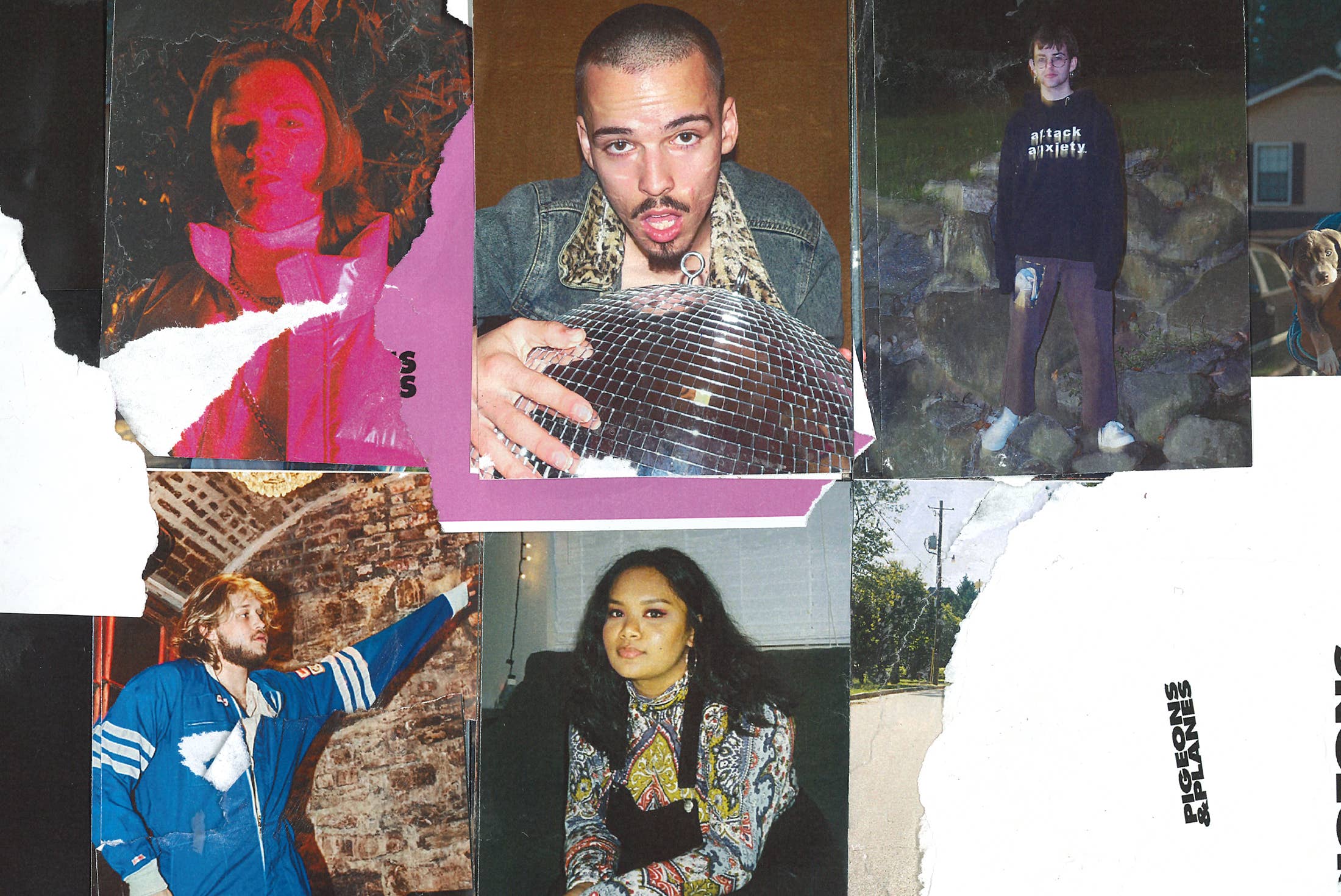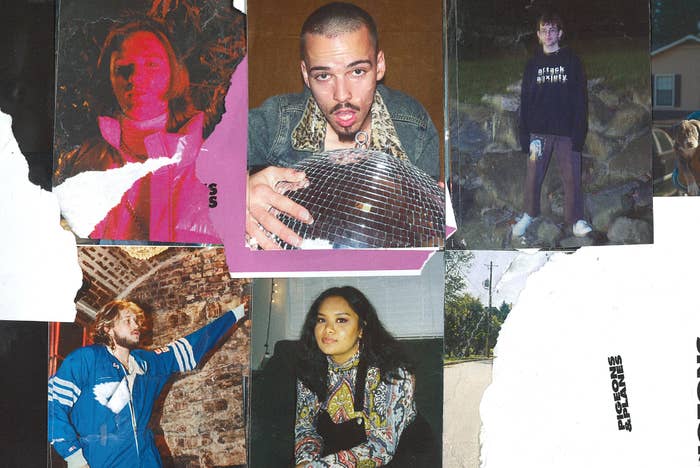
Trap or not, Atlanta is a city most prominently defined by hip-hop. However, in an age where genre is becoming increasingly fluid and DIY scenes are lively as ever, there’s more than meets the eye in Georgia’s capital.
Adjacent to the new age of Atlanta hip-hop is a buzzing alternative scene, similar to the hip-hop infrastructure in its values of live performance and collaboration. We’re watching artists turn bedroom-ready records into sold out venues, and homemade demos into millions of streams. The current day and age of music is the Wild West, and these alternative artists are helping to navigate it, just left of Atlanta’s hip-hop fabric. If there’s anything to know about Atlanta, it’s that the city will always make room for talent.
After speaking with and introducing five Atlanta rappers bubbling up with alternative approaches and varied styles, we're now looking beyond rap. Meet five alternative artists inspired by genres like rock, soul, R&B, pop, and electronic music, and spinning them into their own unique sounds.
Shrimp
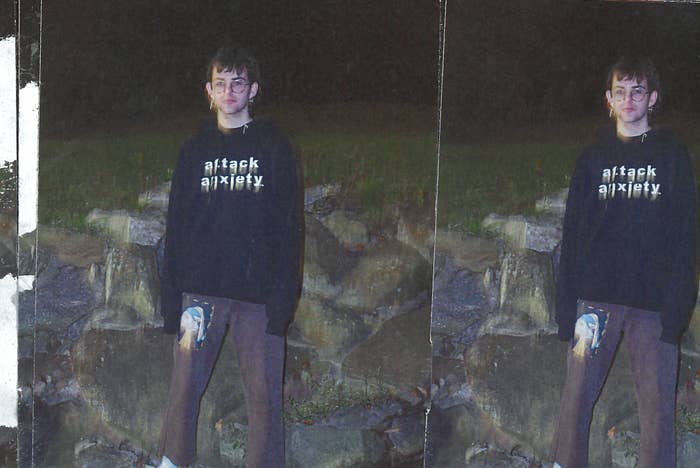
Shrimp’s music is cathartic, but not in a traditional way. It’s just left-of-center, honest, at times weird, but still catchy. “I went through a clown phase at one point," Shrimp tells me. "It’s so interesting—this figure that brings a bunch of people joy and entertainment, but then probably goes back home, washes off the face paint, and just fucking sits in bed alone. People think they’re these happy, goofy people, but maybe they’re not! Maybe they just wanna die. [Laughs]”
The Atlanta native first fell in love with music playing Guitar Hero 3. From there, he began taking guitar lessons, and eventually joined several bands throughout his middle school and high school years. Currently, Shrimp is attending online school as a marketing major. To no surprise, though, the goal is to make music full time.
Lyrically, Shrimp’s style is near-confessional, dense with emotion and unafraid of honesty. When asked if there’s any fear in putting so much heart into his music, knowing that his family might hear some of his darker thoughts, he explains, “My parents are super supportive of what I’m doing, but it’s scary, because they’ll show my grandparents and that gets weird. [Laughs]"
Pouring so much of himself into his music, Shrimp is interestingly a light-hearted person over the phone. With over 50,000 monthly listeners on Spotify, he seems almost gleefully surprised at his success thus far. “I just kinda put stuff out there, and if it hits, it hits. It’s cool, though, because music is such a personal thing for me. If it reaches another person out there, or touches them at all, it feels amazing.”
Yang

Yang exudes warmth when she speaks, welcoming in tone and thoughtful with her words. Her music follows the same pattern. Coming from a musical family—her grandpa was a well-known musician in India, her dad was a musician, and her mother is a classically-trained Hindi singer—there arises the sense that Yang was born for this. She’s honest, she’s expressive, and the character in her music speaks to such.
Born in India and living there until she was 8, Yang’s refreshing allure stems from an attraction to the lush sounds of classic Bollywood music. In terms of sound, though, it’s Atlanta’s soul music that she’s influenced by, which she grew up with after moving to the States as a child. Yang characterizes her style as “alternative soul,” but this title is indicative of more than sound. “My music is my therapy. Whatever I’m going through, or whatever lesson I need to learn, it comes out through a song. Most times I don’t even write, honestly, it’s just how I feel.”
When writing songs, Yang doesn’t shy from speaking through her emotions. She looks at “life as a teacher” and sees the value of music not in how catchy a song might be, but in the connectivity that it provides. “It’s about the feeling of understanding that someone else is going through the same thing that you are. I think we listen to music to relate at the end of the day.”
On a broader scale, Yang speaks to the importance of collaboration for the burgeoning alternative scene in Atlanta. “Everyone has to dust their egos off and work together because you need instruments, songwriters, etc. It takes more to make a record, and people are willing to help each other with that.”
With the axis of her music being authenticity, Yang’s sound is a breath of fresh air. Music is a vehicle for connection, in her mind, and this won’t change.
Wiley From Atlanta
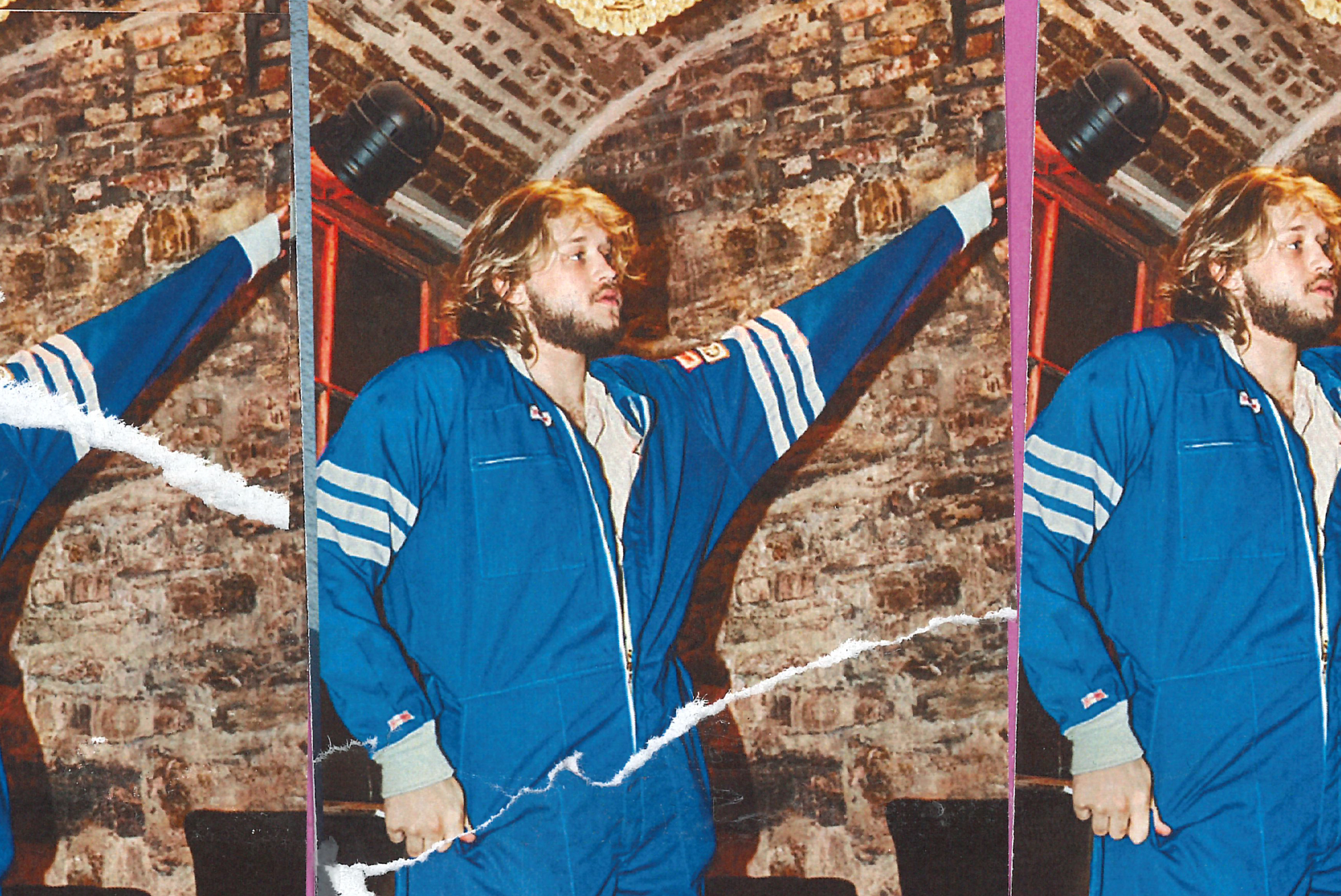
Wiley From Atlanta speaks with towering passion. At times, he rushes to finish sentences in eagerness for the next. Other times, when I ask about his music, there's a sense of enthusiasm in his voice that takes over. He loves this, and he’s going to do anything in his power to protect it. This charm is what makes Wiley such a memorable artist. His biggest song to date is a soul-soaked demo called “Pink Skies,” which was released without much expectation but recently crossed over a million streams on Spotify. Its smoky, strong-hearted presence is unforgettably sincere, and the power in Wiley’s expression continues over into his debut album, Blue Don’t Make Me Cry.
“When I realized that ‘Pink Skies’ had a good chance of hitting a million, it was crazy. You always dream of that kind of thing, but I never thought I’d drop a demo and it would get a million plays. It starts to change your perspective not only on what you did, but what you can do—what’s possible.”
We stopped having that mentality that if someone would come down here and f*ck with us, we would all be out of here... we have to do it ourselves. We have to be undeniable.
The prospect of potential is something Wiley hones in on throughout our conversation. Although his music leans more toward soul than anything else, he exists mainly in the Atlanta hip-hop scene currently boasting Kenny Mason, Jazz Ingram, and several others, all on the brink of imminent change. “We stopped having that mentality that if someone would come down here and fuck with us, we would all be out of here. We changed that mentality to the idea that everybody should be working to make it impossible to look away from here—and we have to do it ourselves. We have to be undeniable.”
Even as Wiley continues to gain notoriety, though, it quickly becomes clear that he’s rooted in a sense of impassioned self-belief that won’t change. “Being a musician is particularly cathartic because of the element of performance, whether on stage or in a song. It’s a very personal art form. I just can’t see myself ever not doing it."
After a 30-minute conversation, Wiley begins to feel like an old friend. It’s more than music, for him. This is life, and Wiley understands that with authenticity, there’s no limit to potential.
Travis Bickle
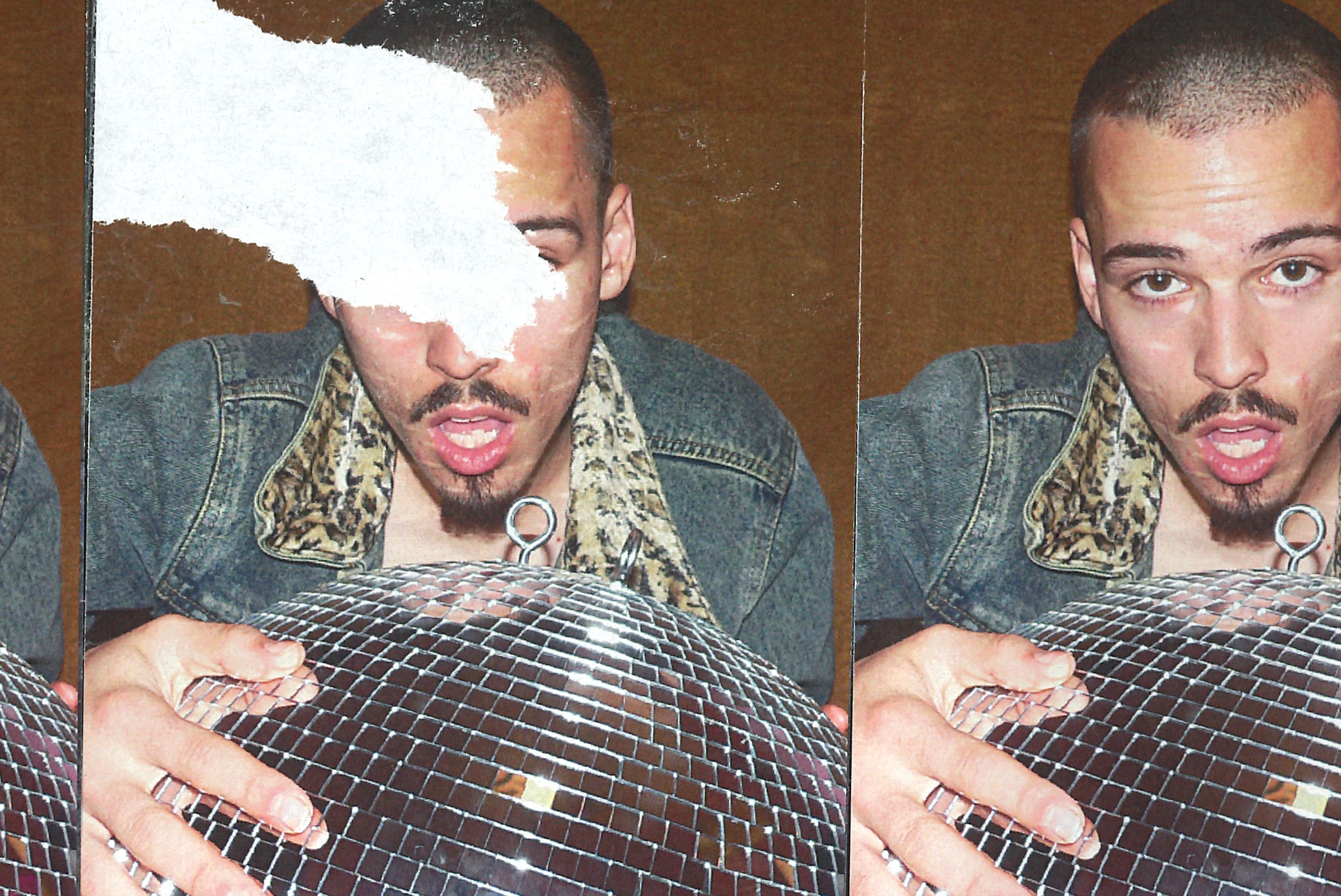
“I’ve noticed that most of the things that have come my way, have had nothing to do with me. It’s almost like the stuff I really seek out and put all my brainpower toward, either doesn’t come, or it’s just not anything like I expect or wanted it to be," Travis tells me. "When I relinquish my control, and just say fuck it, then the good stuff comes.”
Travis Bickle is a character. He was born to traditional Christian parents, and his father was a preacher. As such, Bickle’s early exposure to non-Christian music was limited, but at age 10, he found a Timbaland video game called Beaterator. Essentially a DAW in game form, Bickle fell in love with the process, and constantly toyed around Beaterator until someone taught him FL Studio.
In 2016, Bickle dropped out of high school and was entered into a psych ward in light of what he describes as “mental woes.” Eager to make music, he jumped at the opportunity to learn production and engineering when he got out, and eventually began recording his voice “out of necessity.” Bickle’s beats were just weird enough that no one else jumped on them, so he did it all himself.
During this period, Bickle was living in his girlfriend’s parents’ house, and eventually felt the pressure to get a job. He got a job at a laundromat, and on the second day got hit by a car while on a bike ride before work. He was a bedridden for a few days, and eventually, his girlfriend gave him a pep talk. “You can’t sit here all day and moan. Do something, release a song.”
Bickle released “Get A Job,” and from there, everything changed. The song garnered tens of thousands of plays, and everything began to click, just when he was beginning to lose hope. This is the way that Bickle’s life has worked thus far. With an electrifying style ranging over a breadth of genres, his eccentric charm has been rewarded with great praise, in Atlanta and beyond. Now, Bickle looks toward chipping away at his debut album. “I’ve wanted the music I drop to be more meaningful and come out the right way. I’ve also been been deleting everything that doesn’t fully represent what I’m trying to do. At this point, though, I’m tired of that. I’m ready to release new shit.”
Grandma

Grandma was born in New Orleans but moved to Atlanta at age nine after Hurricane Katrina. Guitar Hero was the reason he grew to love music around 10 years old. “The name is a dedication to my grandma," he says "I love my grandma, and most people love their grandmas, so it worked.”
There’s a humorous charm that comes through when talking to Grandma or watching his videos. “‘It’s not me, it’s you’ is an awful, cheesy lyric," he tells me. "But you know, I’m trying to be post-ironic, post-materialistic. Post Malone, even.” Just under the surface, though, Grandma is self-aware. He acknowledges that the relationship between humor and art is often a confusing one, and marvels at the merging worlds of the two on platforms like TikTok.
Atlanta has a certain respect for identity. For example, there are amazing, talented artists from LA, but I don’t understand why a band would move from say, Des Moines to LA and start calling themselves an LA band.
Sonically, Grandma knows no limits. “Downtown Life,” he explains, was influenced by a song from The Cure that he heard at a restaurant. “It’s Not Me, It’s You” was created during a Prince kick. This genre fluid world is where the rising talent resides. Beyond the lively snippets and compelling online character, he’s making a colorful range of music, one that dares to stand out. You can’t quite pin down his style, and that’s the joy of it. In Atlanta, this eccentricity is celebrated.
"Atlanta has a certain respect for identity," Grandma says. "For example, there are amazing, talented artists from LA, but I don’t understand why a band would move from say, Des Moines to LA and start calling themselves an LA band. Own being from Des Moines. That’s different, that’s cooler. Everyone’s an LA band!”
Grandma’s new album, Even If We Don’t Get It Together has an eclectic allure to it, embracing of his oddball stature. But as poised as the music is, Grandma isn't going to change.

